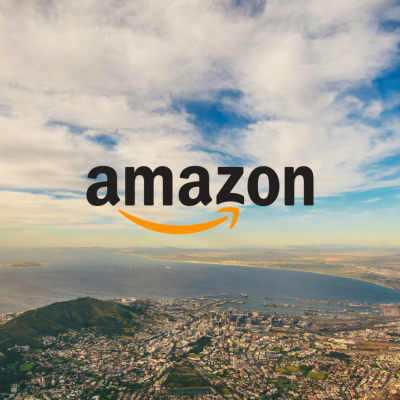South Africa, often referred to as the gateway to the African continent, is a significant addition to Amazon’s global expansion strategy. As one of the most economically advanced nations on the continent, South Africa offers a market of over 60 million potential customers. Its economy, with a growing middle class and increasing internet penetration, presents a lucrative opportunity for Amazon to tap into a new customer base. Through Amazon, South African brands stand to gain access to global markets in a way the region has never seen before.
Key Implications for the South African Market
With Amazon’s entry, the South African e-commerce landscape is set to become more competitive. Local e-commerce platforms and retailers will need to up their game to compete with Amazon’s vast product range, competitive pricing, and efficient delivery network.
The Blessing of Competition
Heightened competition will likely lead to innovations and improvements in the local e-commerce sector, benefiting South African consumers. However, based on previous market entries by the e-commerce giant, local marketplaces stand to significantly benefit from their new competitor. For example, when Amazon launched in Sweden in 2020, many brands were negatively surprised by the platform.
“…it immediately created a strong interest from brands in the other Nordic regions. Not only is Sweden a common market for most Nordic brands, but it was useful to give them a good idea of what to expect when Amazon expanded into their own countries. However, some of them were in for a nasty surprise. Not only were many of their own brands and products already listed, but their content was poorly translated, and often with incorrect prices,” explained Ulrik Grevenkop-Castenskiold, Head of Marketplaces (Nordics), Incubeta.
Brand loyalty and market trust are where local marketplaces have a competitive edge against Amazon, as well as in their localization capabilities. These are two areas that Amazon has historically stumbled with, which has in fact boosted the position of local marketplaces in other regions. For example, in the Netherlands Bol.com reigns as the preferred marketplace, surpassing Amazon in both size and popularity. They boast an extensive range of products, local partnerships, and a deep understanding of the Dutch and Belgian consumer markets.
A Boosted Economy & Investment Areas
Unsurprisingly, Amazon’s penetration into South Africa is also expected to generate more jobs in the region. In fact, this already started in 2022, when Amazon advertised for over 300 jobs across software development, customer support, technical product management, and international compliance.
To effectively serve the market, Amazon will need to make significant investments in logistics and infrastructure, potentially collaborating with local service providers. It appears they’ve already taken steps in this direction, forming partnerships with Pargo and The Courier Guy, including Pudo (according to its pickup location search tool).
High warehousing costs and the reliability challenges of South Africa’s postal service pose big challenges for any retailer looking to sell their goods digitally. Remaining cost-effective whilst fulfilling Amazon’s promise of hyper-convenience and quick delivery will be no easy feat in the region. Consumers will expect delivery within a few days, but many businesses don’t have the resources to run their own distribution centers or to acquire their own delivery service (as Takealot did with Mr Delivery in 2014). Brands will be watching Amazon’s steps closely, potentially as they allow smaller players to tap into and leverage their infrastructure. If Amazon can pull it off, it would significantly lower barriers to entry for SMEs and niche retailers looking to claim a piece of the growing ecommerce pie.
Implications for Amazon Sellers and Vendors Worldwide
Diversifying an Already Global Network
Their presence in South Africa will open the doors to other international Amazon sellers and vendors, as it will now be part of their global fulfillment network. South Africa will offer international players a new and diverse customer base with a growing appetite for online shopping. Where storing, packing and shipping products to the region seemed incredibly daunting to international brands before, Amazon significantly lessens the load by promising simpler logistics, as well as reduced costs and delivery times. Conversely, the venture opens doors for South African brands to more easily access global markets – by building confidence and experience with the new local South African Amazon store, building into the other 22 (and counting) Amazon locales would be more straightforward and palatable for great South African vendors and sellers.
Unlocking Value from Strategic Partners
Brands can best position themselves for successful internationalization by partnering with organizations with deep Amazon expertise, as well as strong localization capabilities. While Amazon offers a good foundation for internationalization, competitive brands need to go beyond. Specifically, this entails a solid understanding of international trade laws, logistics, marketplace content and advertising, and localization (cultural and linguistic adaptations). Certified Amazon partner agencies such as Incubeta play a critical role in driving strategic and long-term growth, especially for scaling brands.
–
Overall, Amazon’s entry into South Africa in 2024 is a significant development with far-reaching implications. It promises to drive economic growth, foster competition and innovation, and expand opportunities for Amazon sellers and vendors worldwide. As Amazon continues to spread its global footprint, its presence in South Africa marks a pivotal moment in the ever-evolving landscape of e-commerce, benefitting both local and international players alike. The global marketplace is, indeed, becoming more interconnected than ever, with Amazon arguably leading the way.
Remember, size doesn’t matter – if you’re a large or small brand, Incubeta is here to help, so get in touch today and let’s work out your Amazon ZA strategy.
This article was updated on 08.05.2024 – originally published in November 2023.




